Introduction
A Female Pan Feeding System is a specialized feeding equipment designed to deliver accurate, hygienic, and efficient feed distribution to breeding sows in modern pig farms. In intensive pig production, proper feeding management is critical to ensuring optimal reproductive performance, body condition, and sow health. The feeding system for female pigs—especially gestating and lactating sows—must provide consistent nutrition while reducing feed waste and competition among animals.
The FeMale Pan Feeding System integrates advanced engineering and automated control to provide an efficient, reliable, and animal-friendly solution. It typically consists of durable feeding pans, feed dispensers, feed lines, and control units that manage feed distribution automatically. Whether in gestation stalls or group housing, this system guarantees equal feed access, precise portioning, and improved feed utilization.
By optimizing feed delivery and reducing manual labor, the Female Pan Feeding System plays a vital role in enhancing farm productivity, supporting sow welfare, and achieving cost-effective, sustainable pig production.
Technical Parameters
Product Name | Female Pan Feeding System |
Material | High-strength PP plastic / Stainless Steel |
Feeding Capacity per Pan | 3–8 kg (adjustable) |
Feed Distribution Method | Automatic / Manual |
Feed Line Diameter | 45 mm / 60 mm (customizable) |
Feeder Type | Chain or Disc type feed delivery |
Power Supply | 220V / 380V, 50/60Hz |
Control System | Electronic feed controller with timer |
Mounting Style | Suspended or fixed installation |
Applicable Animal | Breeding sows, gestating sows, and lactating sows |
Installation Environment | Indoor / Semi-open pig barns |
Feeding Frequency | 1–4 times per day (programmable) |
Cleaning Method | Easy disassembly and water cleaning |
Optional Add-ons | Feed sensors, weight monitoring, automatic refilling system |
Features of Female Pan Feeding System
Precision Feed Distribution
Delivers the right amount of feed to each sow automatically, minimizing competition and ensuring balanced nutrition.
Adjustable Feed Volume
The system allows feed quantity adjustment per pan to match each sow’s dietary needs and reproductive stage.
Durable and Hygienic Construction
Made of high-quality, corrosion-resistant PP plastic and stainless steel, ensuring long service life and easy cleaning.
Automatic Control System
Equipped with programmable feed controllers and timers for scheduled feeding, reducing manual intervention.
Uniform Feed Access
All sows receive feed simultaneously, improving uniformity and reducing aggression or dominance behavior.
Low Feed Waste Design
The special pan shape prevents spillage and ensures all feed is consumed, improving feed conversion ratio (FCR).
Flexible Installation
Can be installed in individual stalls or group pens, adaptable to various housing systems.
Quiet Operation
Smooth feed delivery and motor operation minimize noise and stress for animals.
Easy Maintenance
Simple design with removable parts allows quick cleaning and minimal downtime.
Compatibility with Automated Systems
Integrates with farm management software, feed silos, and climate controllers for a fully automated pig house system.
Advantages of Female Pan Feeding System
1. Enhances Reproductive Performance
Proper and consistent feeding helps maintain the correct body condition for breeding sows, improving fertility rates and piglet viability.
2. Reduces Feed Costs
Accurate feed delivery and low waste reduce unnecessary consumption, leading to measurable savings on feed expenses.
3. Promotes Sow Welfare
By ensuring equal access to feed, aggression and stress among sows are significantly reduced, supporting animal welfare.
4. Increases Labor Efficiency
Automation minimizes the need for manual feed distribution, freeing up labor for other critical farm operations.
5. Improves Hygiene and Biosecurity
Closed feeding systems prevent contamination and rodent access, ensuring a cleaner feeding environment.
6. Supports Different Production Stages
The system can be adapted for gestation, lactation, or breeding areas, with adjustable feed volumes based on production needs.
7. Integrates with Smart Farm Systems
When combined with digital controllers and sensors, the feeding process becomes fully traceable and adjustable from a central control platform.
8. Ensures Feed Uniformity
Each sow receives the same feed quality and quantity, maintaining uniform body conditions and reducing production variation.
9. Suitable for Group Housing
The design supports collective feeding while minimizing fights, a key advantage for farms transitioning to welfare-compliant housing systems.
10. Long-Term Cost Efficiency
With durable materials and reduced feed loss, the system provides a high return on investment and long-lasting performance.
Application Scenarios
1. Gestation Stalls
In gestation stalls, the Female Pan Feeding System ensures each sow receives individualized feed portions, helping maintain ideal body condition during pregnancy.
2. Group Housing Systems
For farms adopting group sow housing, the system promotes uniform feeding while preventing dominant animals from monopolizing feed.
3. Farrowing Rooms
Feeding lactating sows regularly supports high milk production and rapid piglet growth.
4. Breeding Units
Balanced feeding supports optimal ovulation and fertility rates during the breeding phase.
5. Large Commercial Pig Farms
On industrial-scale farms, automated feeding systems reduce human error and optimize operational efficiency.
6. Family-Scale Pig Farms
Small and medium-scale farmers benefit from simplified operation and low maintenance while improving feeding consistency.
7. Hot and Cold Climate Pig Houses
Regardless of environmental conditions, the system can operate efficiently with proper installation and ventilation integration.
How to Use Female Pan Feeding System
1. Installation
Install feeding pans beneath the feed lines, ensuring correct spacing between stalls or sows.
Connect feed lines to the main feed silo or storage hopper.
Mount the control box in a dry, accessible area.
Connect power supply and verify system grounding for safety.
2. System Setup
Program the feeding schedule using the control panel or software.
Adjust the feed dosage per pan to suit sow requirements.
Set automatic start and stop times for feed distribution.
Test feed delivery and ensure even distribution across all pans.
3. Operation
Once programmed, the system automatically delivers feed according to schedule.
Feed sensors can trigger refilling when levels are low.
In manual mode, operators can start or pause feeding as needed.
Observe feeding behavior to ensure all sows are eating properly.
4. Cleaning and Maintenance
Disassemble pans and clean with warm water after each feeding cycle or daily, depending on feed type.
Inspect feed lines for blockages or damage weekly.
Lubricate moving parts and check electrical connections monthly.
Replace worn-out parts promptly to prevent downtime.
5. Safety Guidelines
Ensure power is disconnected before maintenance.
Avoid overloading feed lines with excessive weight.
Keep control units away from moisture and direct sunlight.
Train staff to handle automated feeding systems properly.
Frequently Asked Questions (FAQ)
1. What is a Female Pan Feeding System?
It is an automatic feeding system designed for breeding and gestating sows, delivering precise feed portions through durable feeding pans.
2. How does it improve sow performance?
By ensuring consistent feeding and equal access, it maintains ideal body condition and enhances reproductive efficiency.
3. Can it be used for group housing systems?
Yes. It is suitable for both individual stalls and group sow housing, offering flexible installation options.
4. What types of feed can it handle?
It can distribute dry, granular, or pelleted feed, depending on the feeder configuration.
5. How is feed quantity adjusted?
Feed amounts can be manually adjusted on each dispenser or automatically set via the controller.
6. Is it compatible with automatic feeding lines?
Yes. It integrates seamlessly with chain or disc feeding lines and central feed silos.
7. How often does it need cleaning?
Feeding pans should be cleaned daily or after every feeding session to maintain hygiene.
8. Does it require much maintenance?
Maintenance is minimal — primarily cleaning and periodic inspections of sensors and mechanical parts.
9. Can the system operate in high-humidity environments?
Yes. Components are designed for farm environments and made of waterproof, corrosion-resistant materials.
10. What is the lifespan of the system?
With proper maintenance, the system can operate efficiently for more than 10 years.
Conclusion
The Female Pan Feeding System is an advanced and reliable feeding solution designed to meet the nutritional and welfare needs of breeding sows. Through intelligent feed control, uniform distribution, and energy efficiency, it helps farmers achieve better production outcomes and sustainable management practices.
By combining automation, precision, and animal welfare, this system not only enhances productivity but also represents the future of modern pig farming. For any farm seeking to optimize sow performance, reduce feed costs, and simplify management, the Female Pan Feeding System is an essential investment.
Company Profile
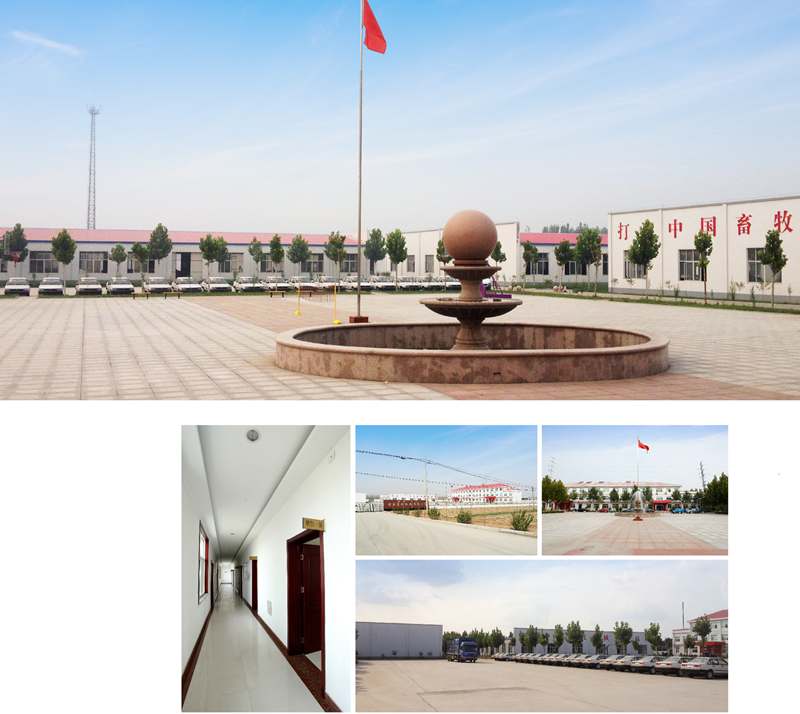
Shandong Huimin Qinle Livestock Machinery Co., Ltd. (formerly Shandong Huimin Qinle Livestock Machinery Factory) is a professional poultry equipment manufacturer with over 20 years of experience. We offer a comprehensive service package, from design (land and chicken coops), production (equipment and prefabricated steel coops), installation, commissioning, customer training, and after-sales service.
Located in Huimin County, Binzhou City, Shandong Province, China, the company has extensive experience in mechanical processing and manufacturing, as well as livestock machinery production and operation. With fixed assets of RMB 15 million, the company employs 160 people, including 30 R&D staff, and occupies a 40,000-square-meter factory. Equipped with over 110 pieces of advanced precision production equipment, including CNC machining centers and laser cutting machines, the company boasts a production capacity of RMB 50 million.
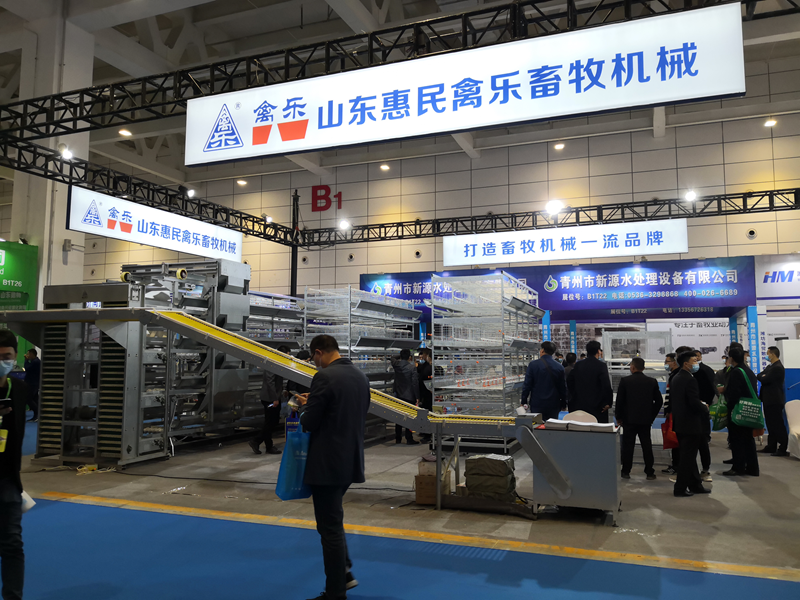
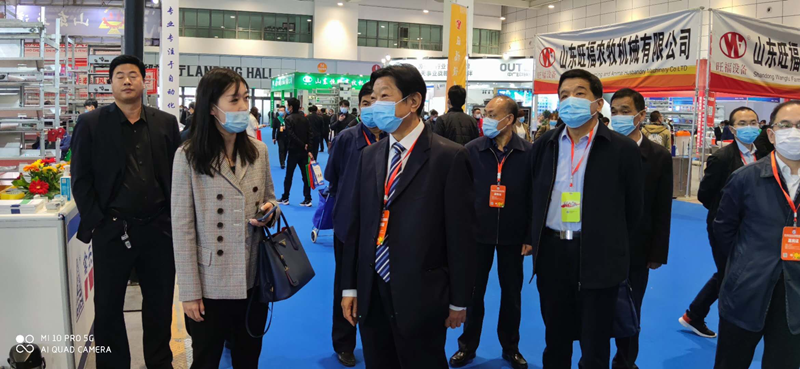
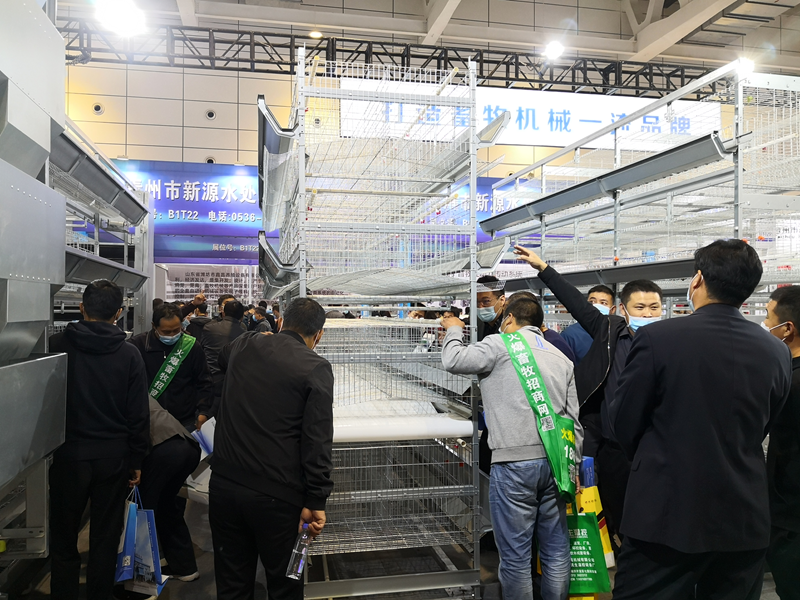
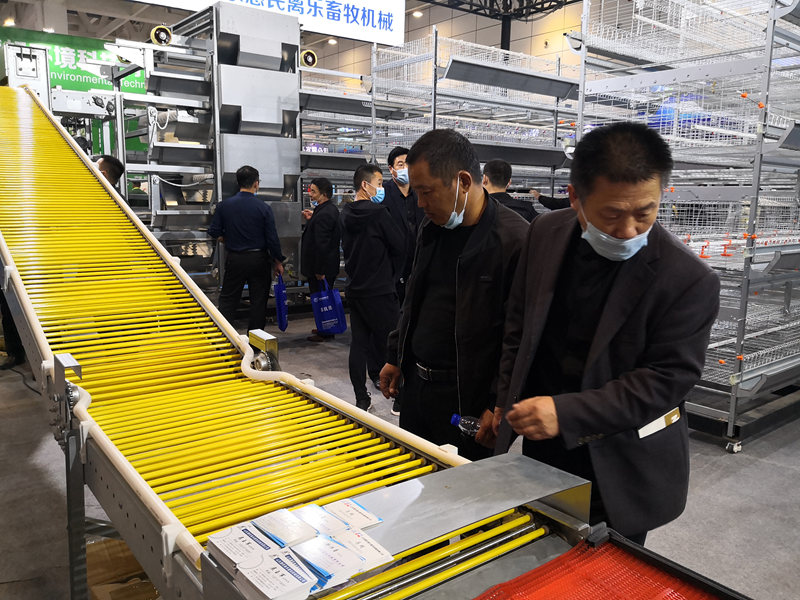
Chicken Farming Equipment Mesh Production Workshop

Machining Workshop
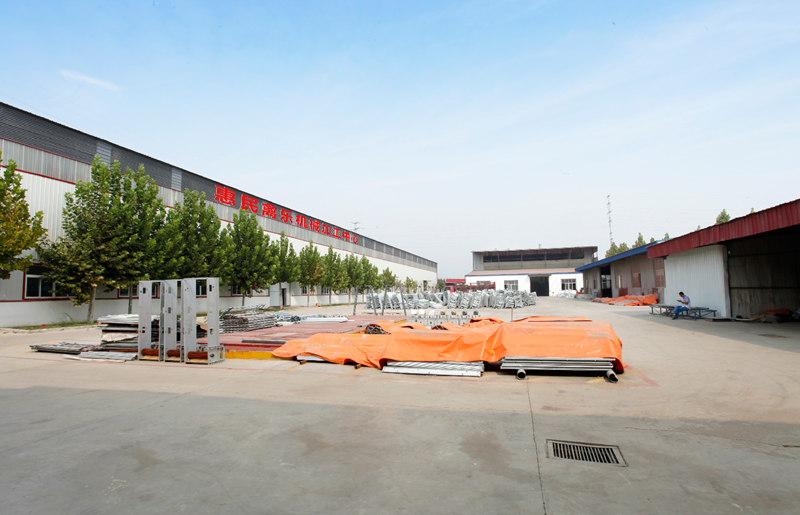
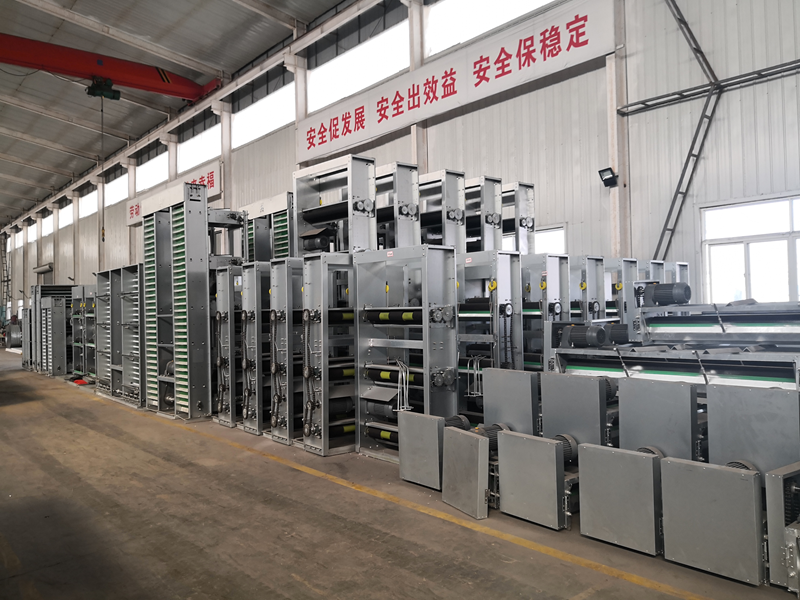
Turret-type CNC Punch Press, Laser Cutting and Other Machining Equipment
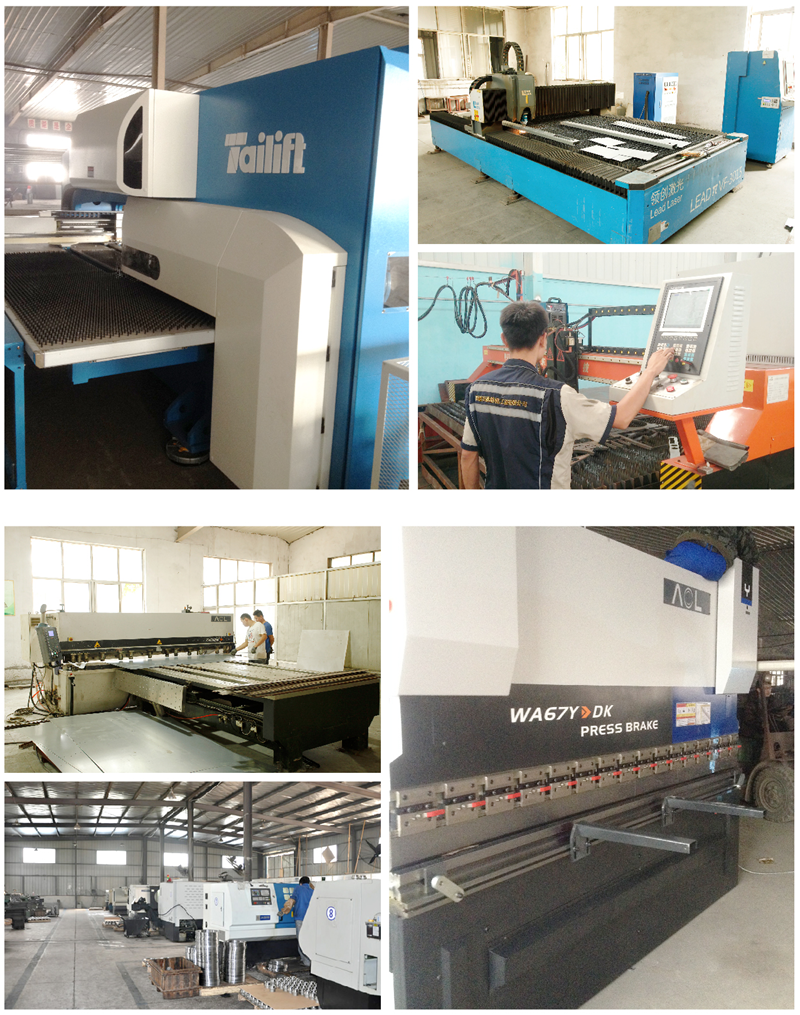
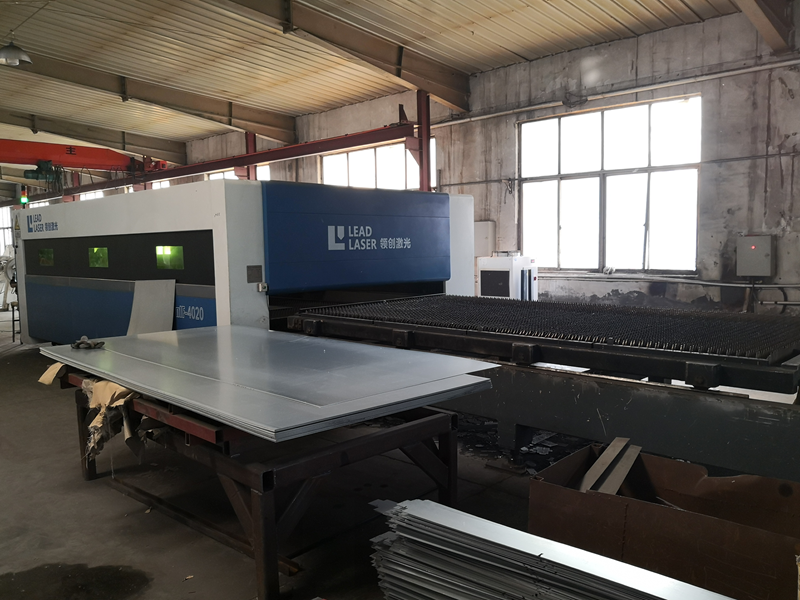

Fully Automated Roll Forming Production Line

Hot-dip Galvanizing Production Line

Electroplating Production Line
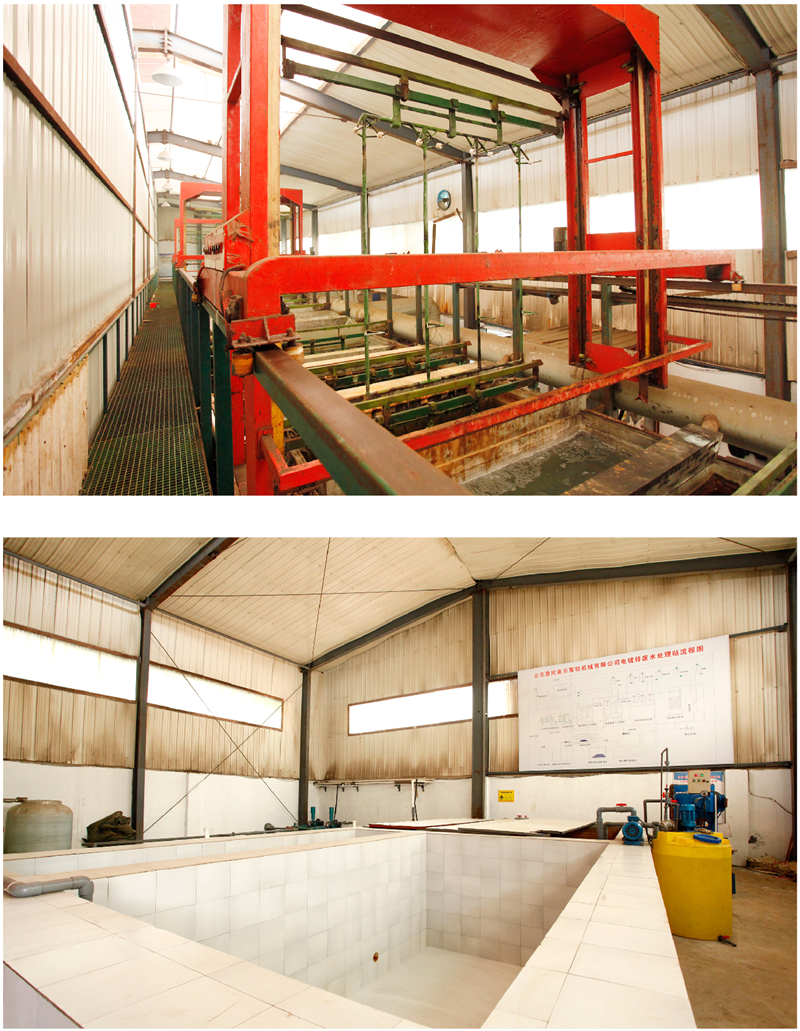
Environmental Protection Equipment
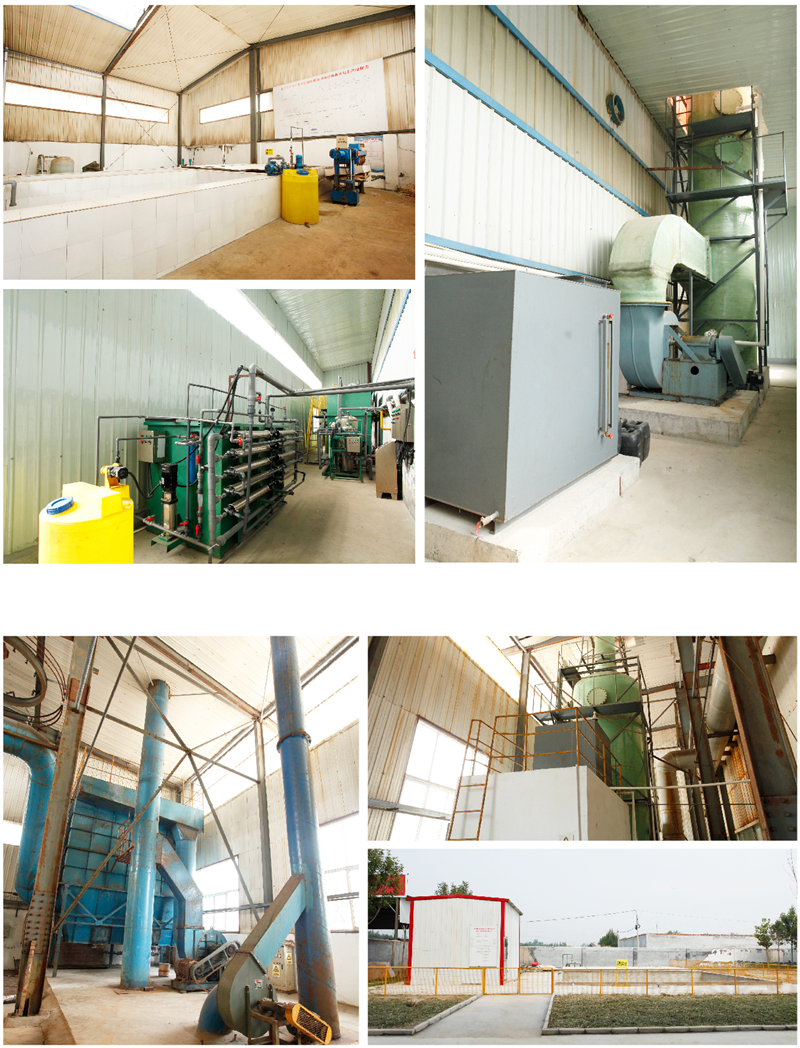
Chicken Farming Equipment Product Series
Egg-laying Hen Farming Equipment
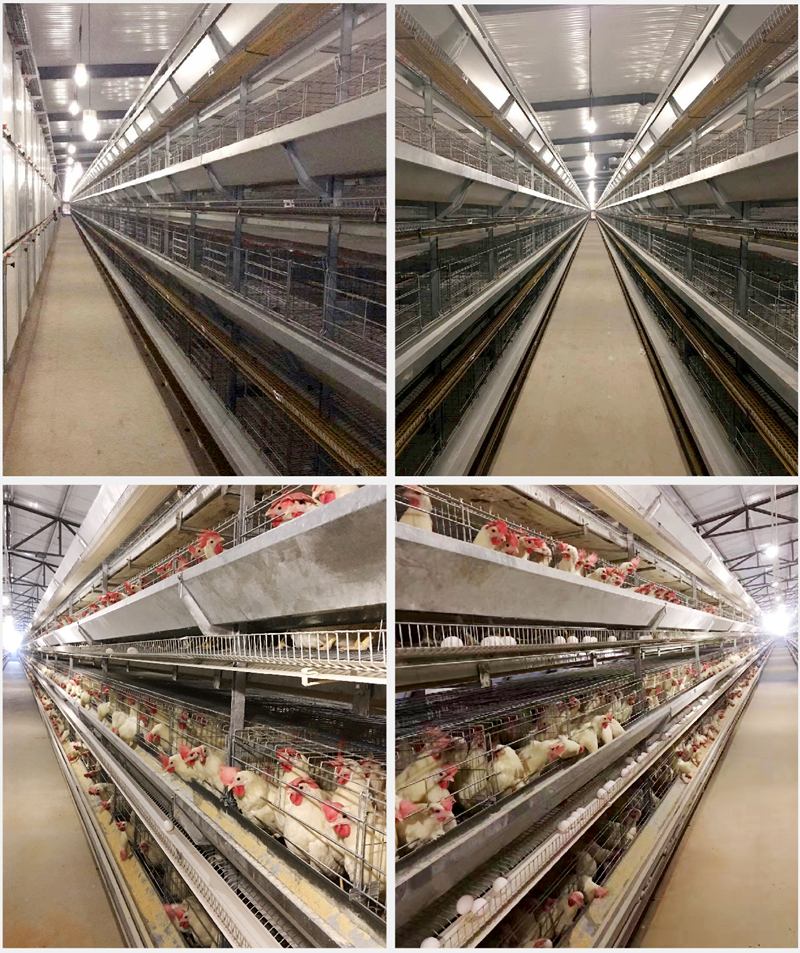
Stacked Brooding Cage Equipment

Stacked Broiler Cage Equipment
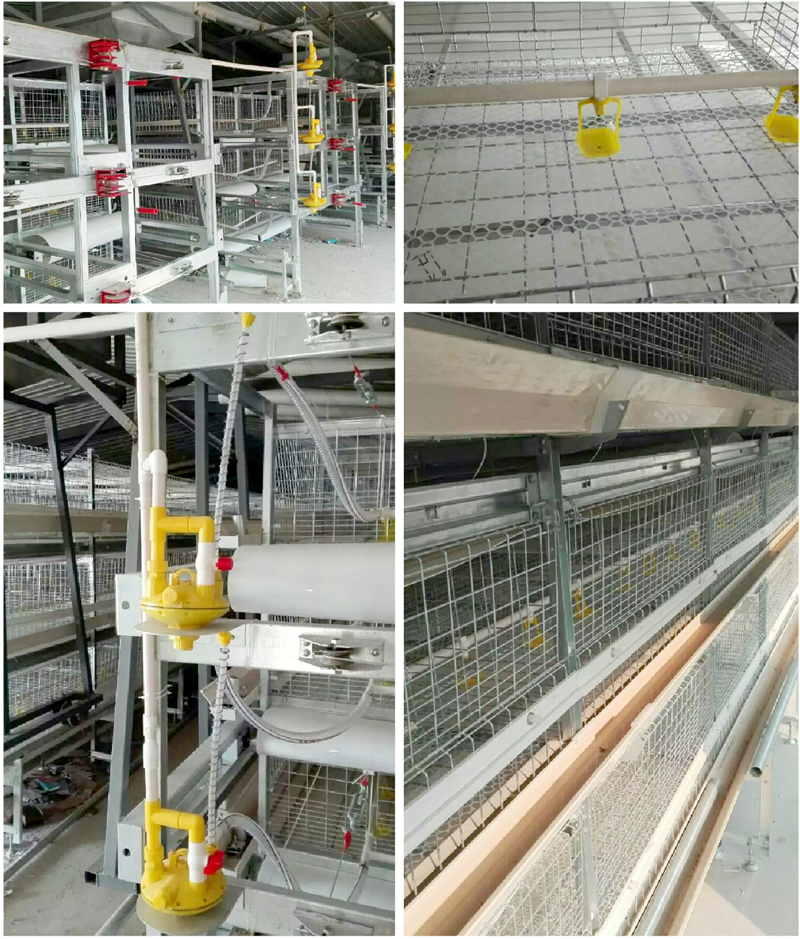
Stepped Layer Hen Cage Rearing Equipment
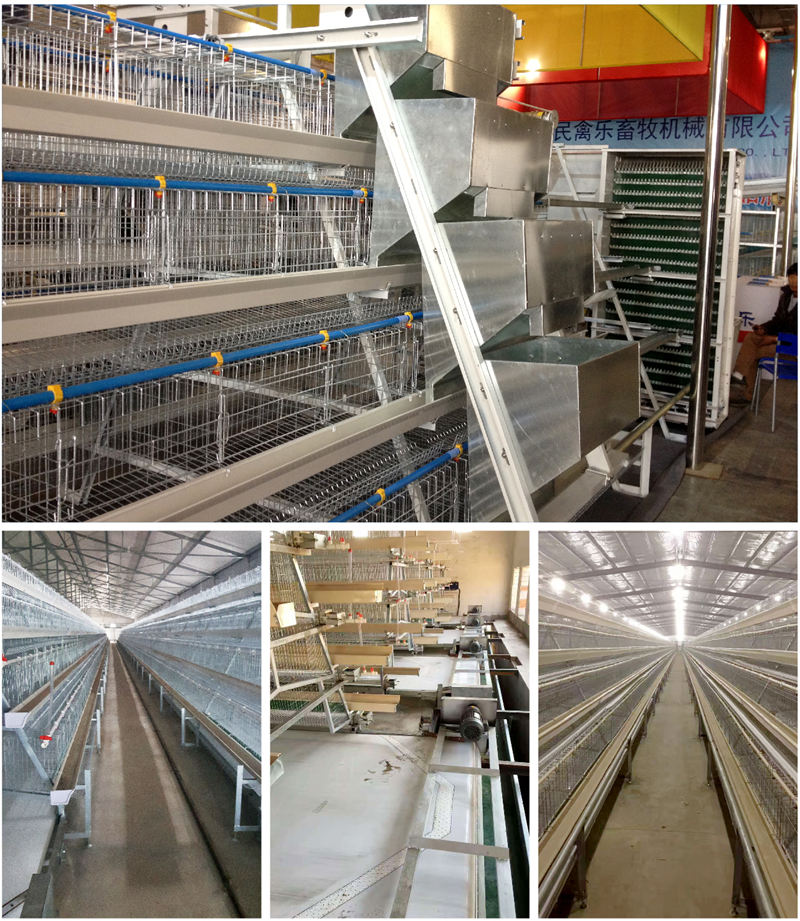
Automatic Egg Collection System
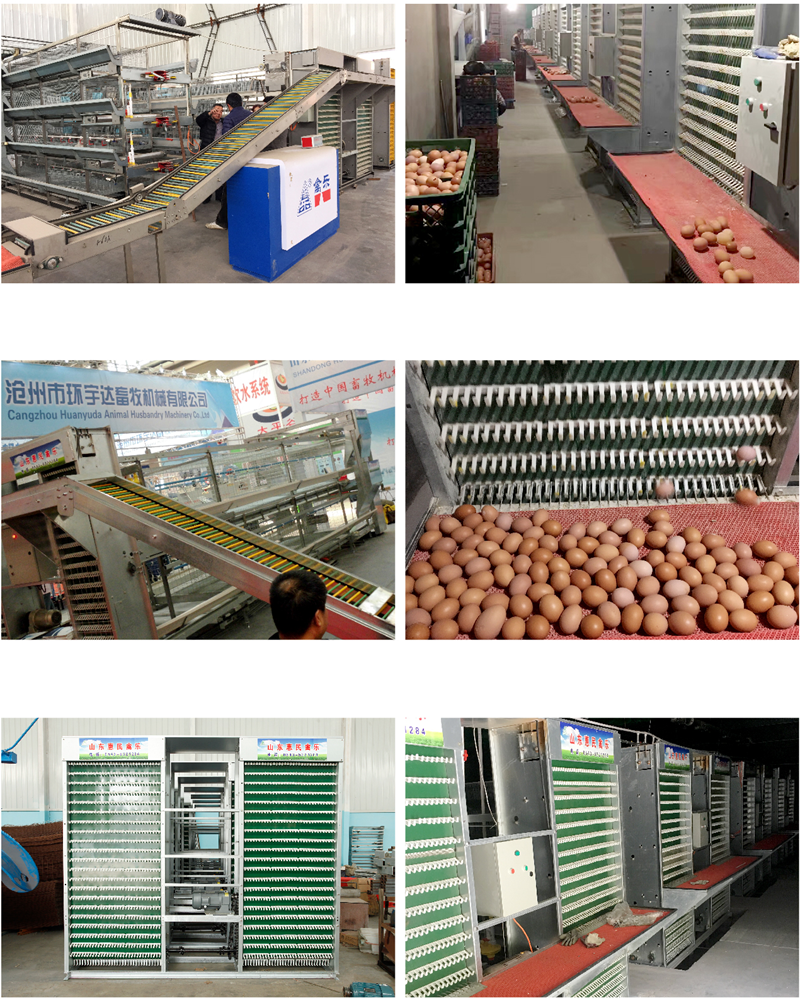
H-type Cage Feeding Machine
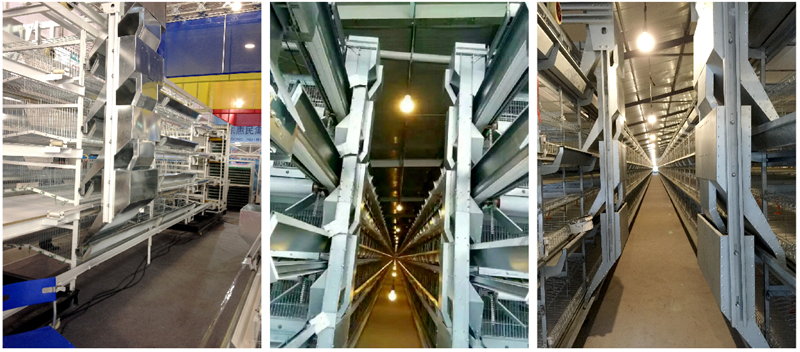
Stepped Cage Straddle Feeder
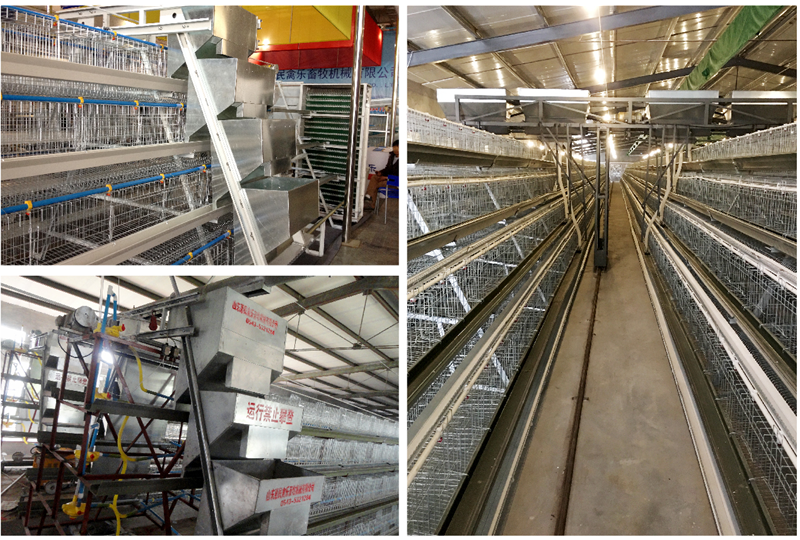
Manure Removal Machine
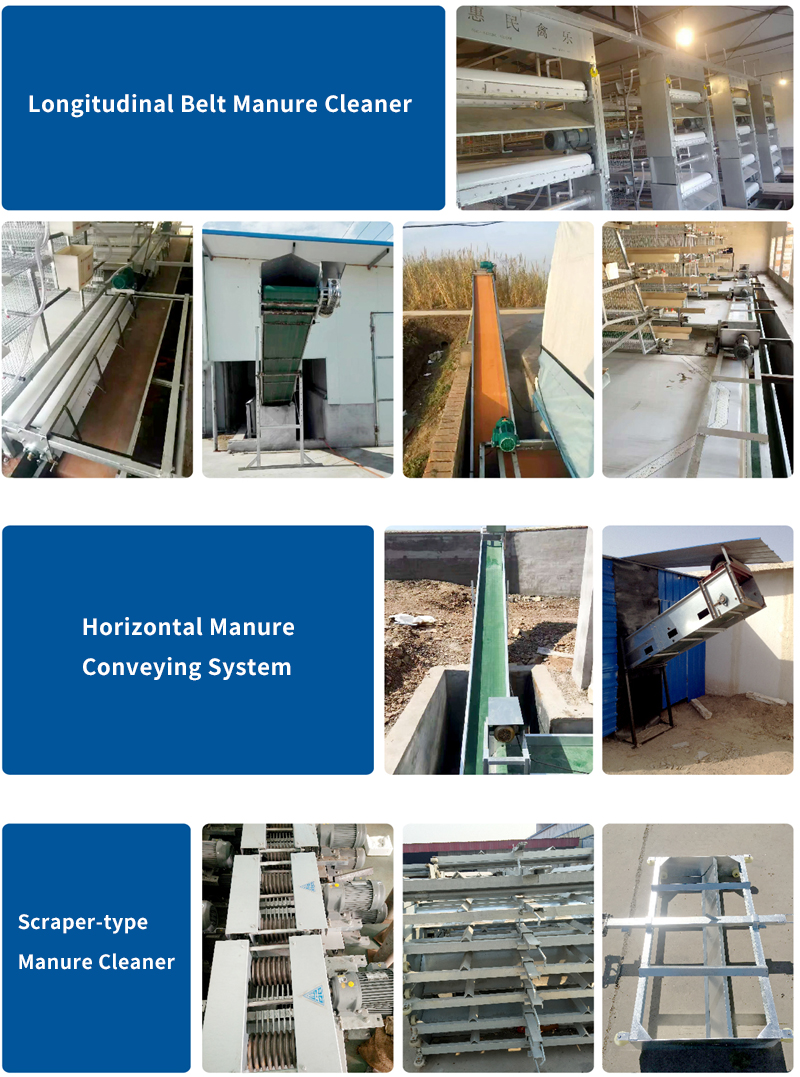
Fans, Heated Curtains, Environmental Control Systems, and Lighting Equipment
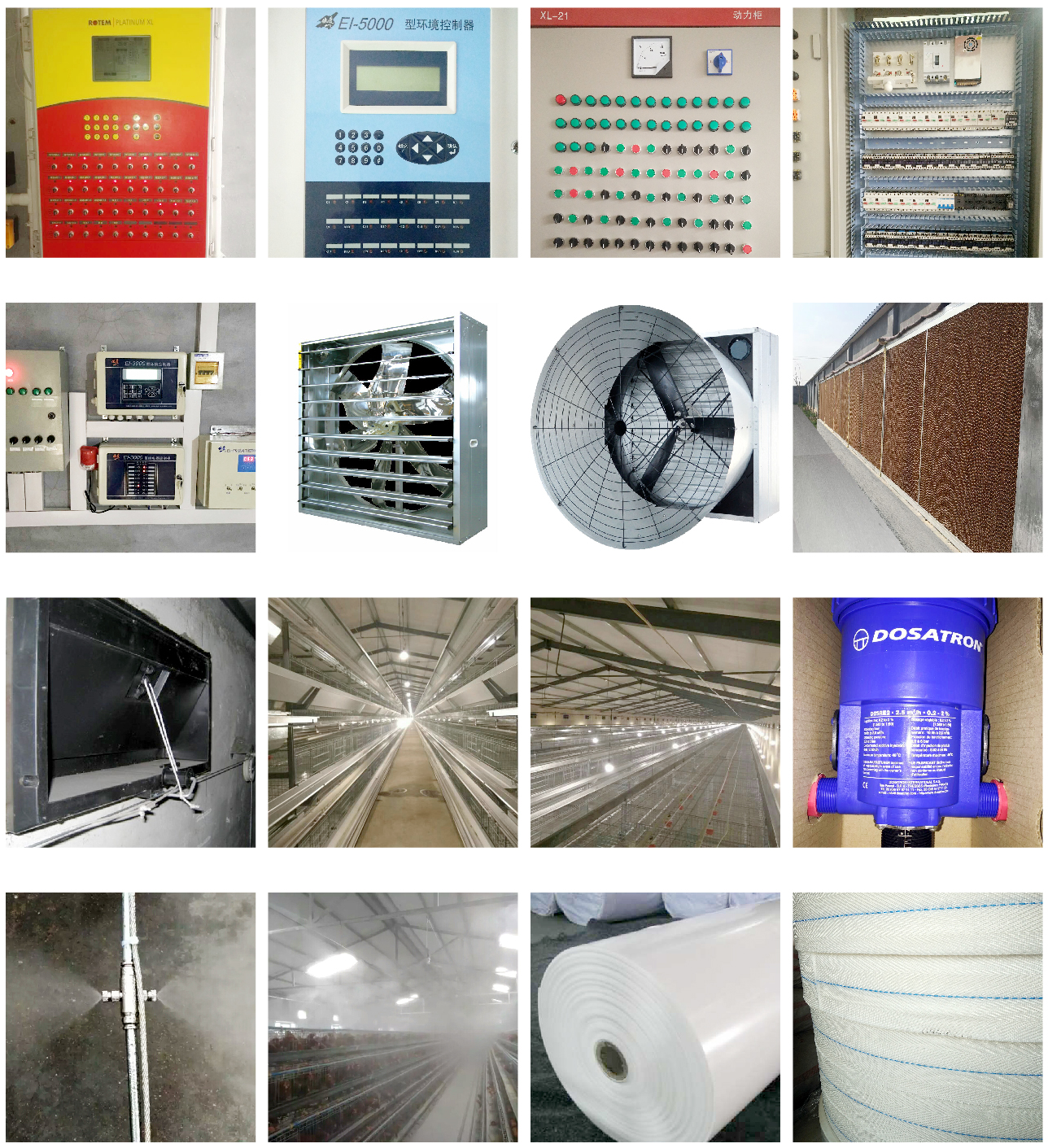
Complete Set of Equipment for Organic Fermentation Treatment of Manure
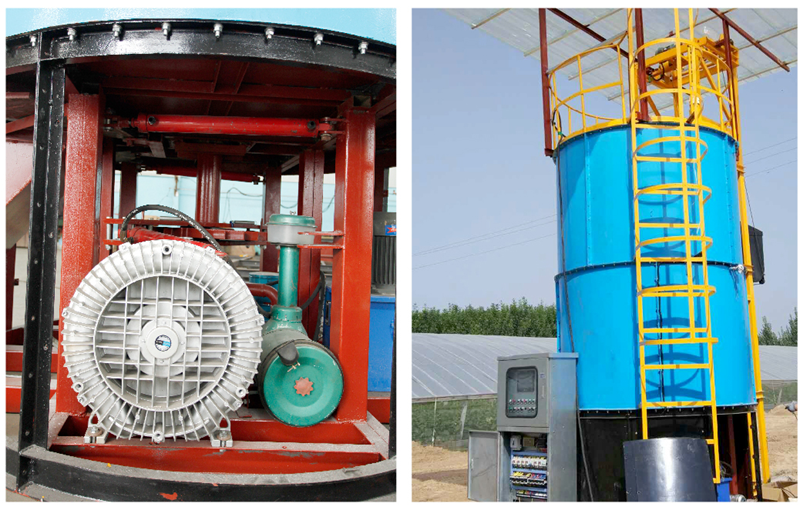

 Catalogue
Catalogue































 WhatsApp
WhatsApp Phone
Phone